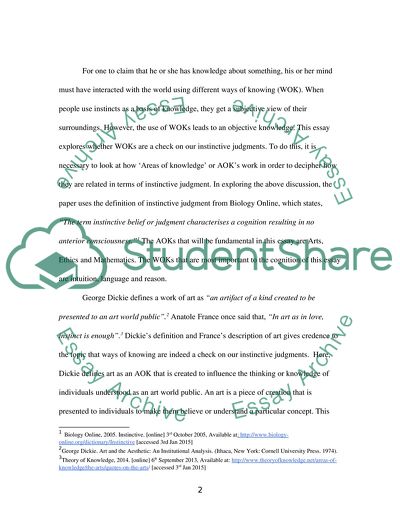Cite this document
(Ways of Knowing Are a Check on Our Instinctive Judgments Essay, n.d.)
Ways of Knowing Are a Check on Our Instinctive Judgments Essay. https://studentshare.org/philosophy/1858914-theory-of-knowledge
Ways of Knowing Are a Check on Our Instinctive Judgments Essay. https://studentshare.org/philosophy/1858914-theory-of-knowledge
(Ways of Knowing Are a Check on Our Instinctive Judgments Essay)
Ways of Knowing Are a Check on Our Instinctive Judgments Essay. https://studentshare.org/philosophy/1858914-theory-of-knowledge.
Ways of Knowing Are a Check on Our Instinctive Judgments Essay. https://studentshare.org/philosophy/1858914-theory-of-knowledge.
“Ways of Knowing Are a Check on Our Instinctive Judgments Essay”. https://studentshare.org/philosophy/1858914-theory-of-knowledge.


